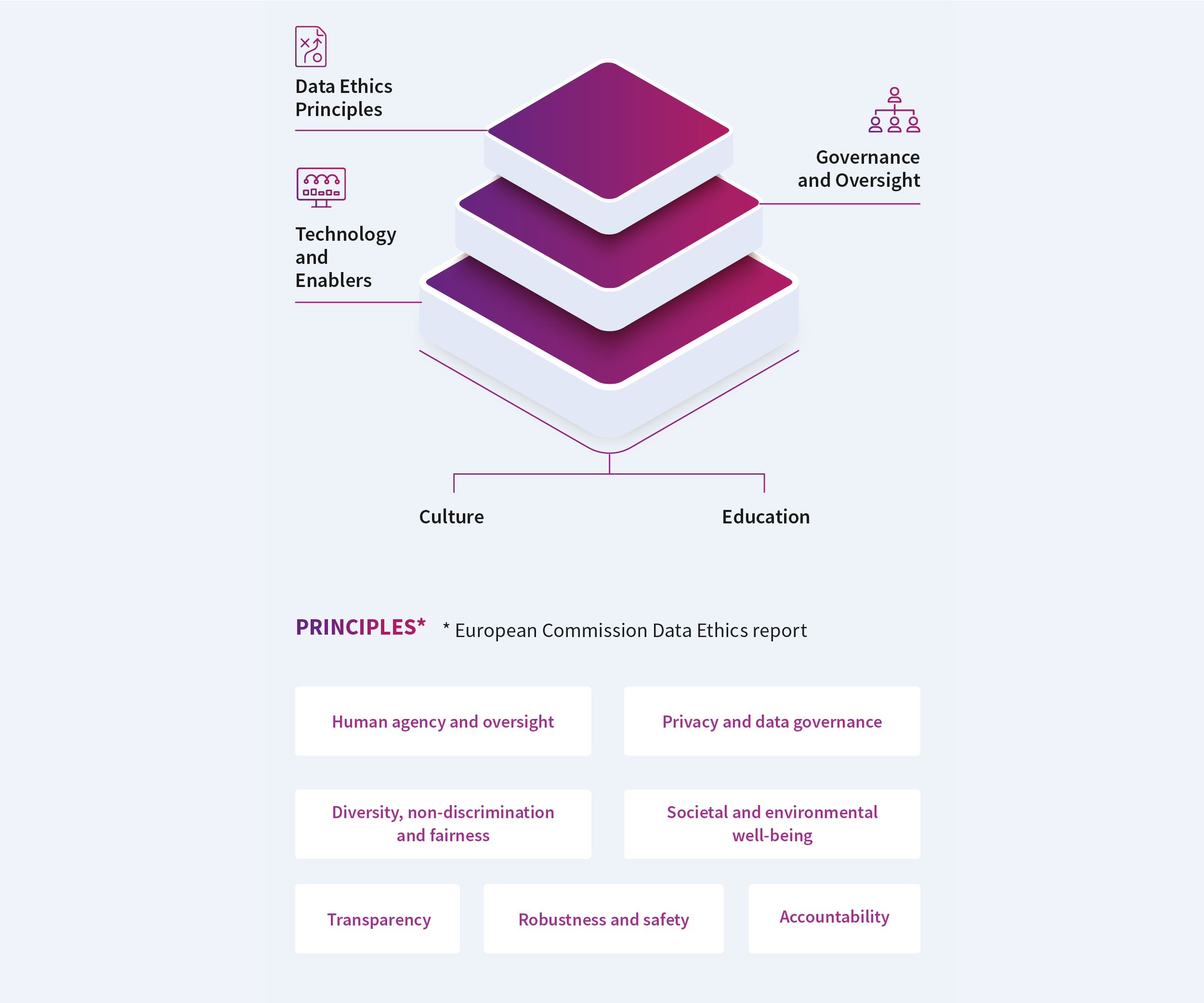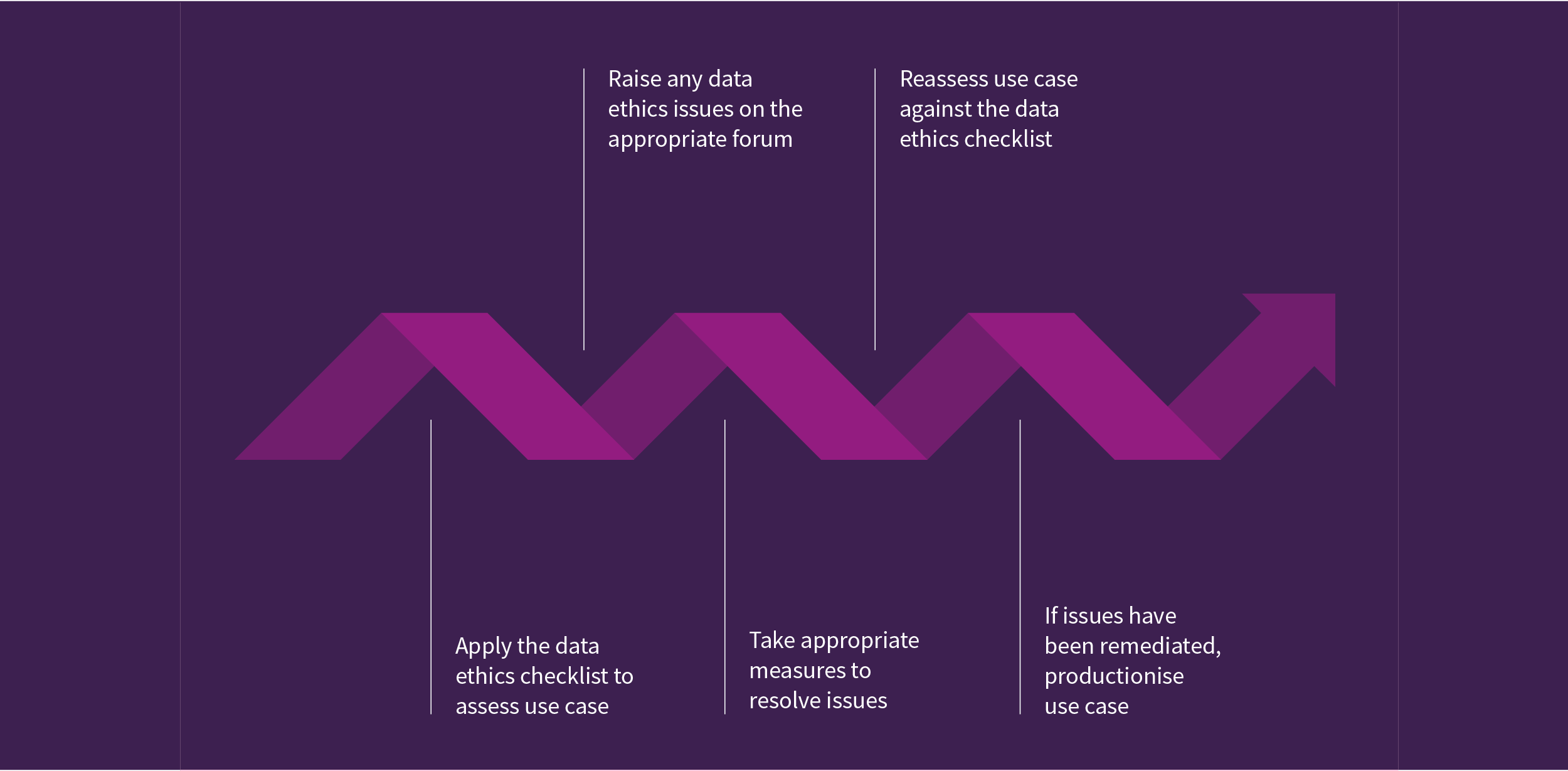MenU
Next Article
CUSTOMER ANALYTICS
Previous Article
INTRODUCTION
CHAPTER 2
Data Ethics – creating an ethical experience for all
As institutional access to personal data has increased, so too has the noise surrounding data ethics. With many of these voices hoping to see the equivalent of the Hippocratic oath for the data space, it is perhaps better to consider ethics from a different standpoint.
In
In the past, we have seen within the tech industry that calls to ‘not be evil’ or Facebook’s ‘Make the world more social and connected’ have been met with derision when deemed to have failed. Google, it must be noted, removed the ‘don’t be evil’ segment from their mission statement back in 2015.
So, while there are arguments both for and against the wider implementation of an ethical code of practice, there is no clear cut path towards what this might look like or where the lines are drawn (between what is ethical and what is not).
In fact, the debate has often led to more confusion due to the theoretical nature of ethical considerations. There are also a lack of good examples within the industry of ‘doing data right’ to act as a clear guide of the wider topic of data ethics. It is difficult for organisations to take the plunge and act first in this circumstance.
An organisation wanting to demonstrate a proactive approach to data ethics then requires a tangible method to measure, assess and monitor this.
Towards data fairness
It is perfectly right for companies, especially those that exist within the data space, to wish to be seen as ethical and virtuous. However, as we have seen in the past, companies in other industries have been burned when held up against their own virtues. In short, they have not practised what they preach.
The problem is that, as was the case with Google, a mission statement can be neatly edited and rules that are not held rigidly by a regulator can be easily subverted or ignored. Until regulation catches up with reality, a mission statement alone cannot be enough to answer the question of data ethics.
The case should be made then to avoid the ethics question completely. Topics that have troubled philosophers for centuries are not those that can be solved in the immediate future. A better question to ask is one of fairness. This, in the spirit of ‘doing data right,’ and in the absence of clearer regulation, will ensure that the overall experience, for both engineers and end-users, will be as unbiased as possible.
A robust and fair framework can be seen as a strong starting point in lieu of any clearer steer of data ethics.
In this manner, by being proactive and working to do something ‘fair’ organisations can begin to understand just exactly what ‘unfair’ looks like. This allows for the formation of an internal environment that opens up the conversation of exactly what we mean by ‘ethical’ has more of an impact?
The case for fairness
It must be remembered that data is no longer an exclusively manual process which means that the collation, consideration and application of data is done through a number of automated processes - machine learning algorithms, inputted models and AI. Hence, if there is a degree of bias inputted at the beginning of the process, this will be showcased in the end result. It could come down to something as simple as an engineer’s favoured algorithm being biased. Even at the end of the process, a person could misread the outputs due to their own biases. However, this also means that positive ethical considerations can and should be made in the early programming (and even recruitment) stages in order to work towards obtaining the fairest outcome. Departments that directly deal with the data resource such as Data Engineering or Data Science must also maintain a level of ethical awareness to ensure fair data and model selections.

How do you measure data ethics?
Even when these ethical principles are put in place (pictured above), they will need to be assessed both before they are productionised and during the monitoring phase. This is why we propose the creation of a clear assessment framework for ethics in Machine Learning in order to reduce bias while maintaining accuracy to promote a fairer ecosystem in data and machine learning. We are strong advocates of the creation of a ‘Data Ethics Officer’ in organisations, whose responsibility would be to assess and oversee ethical assessments on behalf of the wider Data Governance team. As we move forward with our own commitment to data ethics and build out an assessment criteria, we aim to ensure that data is an ethical experience for everyone. Overall, by committing to fairness - fair practices, fair thinking, fair programming, fair algorithms and fair decision making. The industry and what we can deliver for our clients will be in a stronger, more ethical position than ever before.


